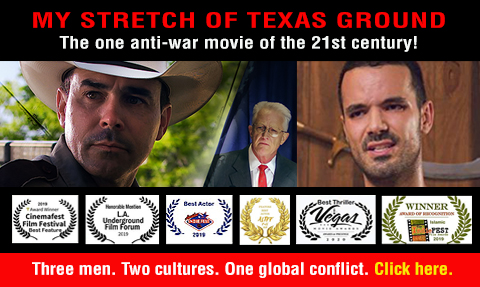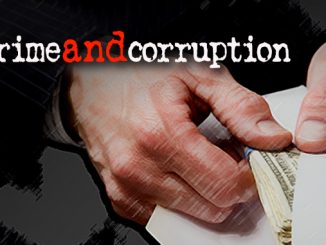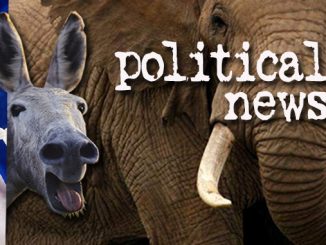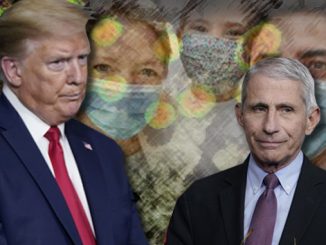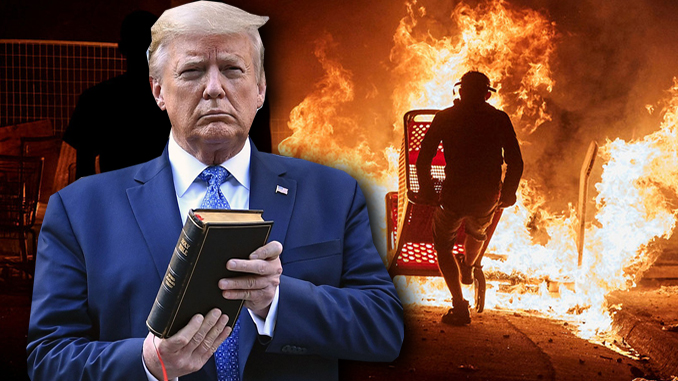
Did an empowered White House go too far to restore “domestic tranquility”?
By Phil Giraldi
The government responses to the killing of black man George Floyd by white Minneapolis police officer Derek Chauvin and three other officers have produced the highest level of national unrest seen in the United States since the 1960s. Tens of thousands of protesters are demonstrating against institutionalized racism and perceived police brutality. As it also comes at a time of coronavirus pandemic and record unemployment, it has the potential to change the United States in fundamental ways. The core issue is that many on both the left and right see America’s police as something like an “occupying force,” increasingly self-serving enemies of the people rather than careful protectors of the taxpayers’ lives and property. What most demonstrators are failing to see, however, is that rather than moving in a more libertarian direction, the change coming to the United States might be a move toward expanding and strengthening the police state, a totalitarian response similar to the Italian and German responses to widespread left-wing street violence in the 1920s and 1930s.
History teaches us that changes in seemingly entrenched attitudes and beliefs occur regularly, though they can sometimes move as slowly as glaciers. When they move more quickly, they are called a “revolution.” In that context, it is interesting to note in a Washington Post story the insights of some American national security veterans who spent their lives studying authoritarian regimes. Most of the critics are admittedly hostile to President Donald Trump, but they are now seeing something like a possible rapid national slide into totalitarianism driven by fear and by how the protests are being addressed by government.
In the United States, law enforcement was traditionally seen as a function of civil society with states having the back-up of the National Guard, which could be called out to confront serious civil unrest. That was generally how the major riots of the 1960s were handled, and there was little change in that formula until 9/11 took place. The fear that was perhaps deliberately stoked about the threat of terrorism led to a melding of civil and military, which led to “militarization” of the police, who were increasingly trained in military style aggressive tactics, to include the creation of SWAT (Special Weapon and Tactic) teams even in relatively small counties and towns. Cops also increasingly received special anti-terrorist training, to include a multi-layered relationship with the human rights-challenged Israeli police, an innovation promoted by Michael Chertoff when he was director of Homeland Security. Surplus military equipment soon followed on the training, with local police and sheriffs’ departments being gifted with armored cars, automatic weapons, body armor, and even some heavy arms capable of destroying a building. Tactics for confronting rather than protecting the public developed along the lines of the training and equipment.
A politicized and corrupted police force that becomes divorced from the public it is supposed to serve and that defers to the authority of government is one of the key elements in the movement toward totalitarianism, where the government has all the power and authority to behave as it sees fit. So, the police became the frontline agents of government control, but they really went over to the dark side after the passing of the Patriot Act and accompanying legislation, when local police forces adapted counter-insurgency methods to monitor Muslim and immigrant neighborhoods in a number of U.S. cities, most particularly in New York and New Jersey. In 2014, the New York Police Department’s revelation that it had deployed what it called “counter-terror” measures against Occupy Wall Street protesters DONATE FOR BOOKS encamped in downtown Manhattan’s Zuccotti Park demonstrated that the writ of the War on Terror could be expanded to include criticism of American vulture capitalism.
To the former intelligence officers observing the scene in Washington, a disturbing cycle is clearly visible, with violent protests followed by crackdowns by police and military and assertions from government that its authority shall not be challenged. President Trump has called on the military and police to “dominate the streets.” It is not dissimilar to the reaction by the Chinese government at Tiananmen Square in 1989 or in Hong Kong currently and to similar government-ordered attacks on protesters in Turkey, Iran, and Malaysia. Perhaps more ominous is the warning coming
from at least one CIA analyst quoted by the Post who observed, “I’ve seen this kind of violence. This is what autocrats do. This is what happens in countries before a collapse. It really does unnerve me.” Another former CIA operations officer also cited was particularly disturbed by the image of Donald Trump lifting a Bible while standing in front of the boarded up and fire damaged St. John’s Episcopal Church in Washington after teargassing protesters to make a symbolic short walk from the White House. It was an evocation of a holy war against the demonstrators, an abuse of religious sentiment to support a purely political agenda.
Other administration high officials amplified the message coming from Trump, with Defense Secretary Mark T. Esper calling on state governors to “dominate the battlespace” with protesters, which many have interpreted to be a decision to treat some U.S. cities as foreign war zones. Chairman of the Joint Chiefs of Staff Gen. Mark A. Milley has also been sharply criticized for participating in the Trump church-front photo op wearing battle fatigues.
Foreign observers of the turmoil in the United States quickly noticed the essential hypocrisy in a White House that condemns China and Iran for their repressive tactics while also demanding “dominance” over American citizens, most—but not all—of whom have gathered peacefully to protest the actions of government.
After interviewing a number of current and former intelligence officers, the Post concluded that, if the British, Germans, Russians, and Chinese were currently writing intelligence assessments on the United States, which they certainly are doing, they would conclude that the country is in sharp decline both physically and morally. The inability to deal effectively with the coronavirus pandemic as well as the loss of confidence in the essential fairness of both government and the economy have made many Americans fear what kind of country might emerge from all the troubles. That the country could prove unable to deal with the internal contradictions might lead to itself changing dramatically, moving in either an anarchical or totalitarian direction. It is something that should not be ruled out.
Philip Giraldi is a former CIA counter-terrorism specialist and military intelligence officer and a columnist and television commentator. He is also the executive director of the Council for the National Interest. His other articles appear on the website of “The Unz Review.”

